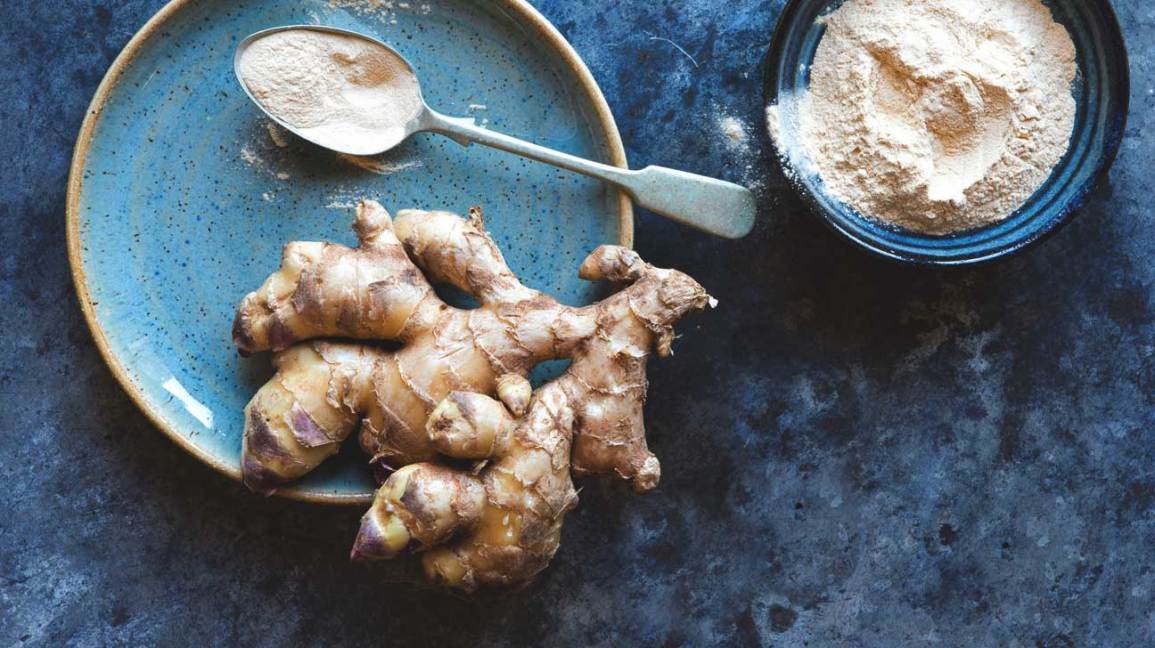Herbs For Digestion
Our digestive system has a very important job in our system and that is to break down food to allow nutrients to enter the bloodstream and where the nutrients are carried to all parts of our bodies. If one doesn’t incorporate healthy herbs and good nutrients for good digestion as part of your diet, your digestive system becomes subject to a lot of health problems – that is why the role of herbs form such important part in the health of your digestive health.
- Herbs For Digestion
- Avoid getting ill
- Tried and tested by the ancients
- 1. Artichoke (Cynara scolymus)
- 2. Ginger (Zingiber officinale)
- 3. Slippery Elm Bark (Ulmus fulva)
- 4. Peppermint (Mentha piperita)
- 5. Angelica (Angelica archangelica)
- 6. Anise (Pimpinella anisum)
- 7. Fennel (Foeniculum vulgare)
- 8. Bitters for better digestion (various herbs)
- Digest this in conclusion
- Best Herbs For Digestion Products
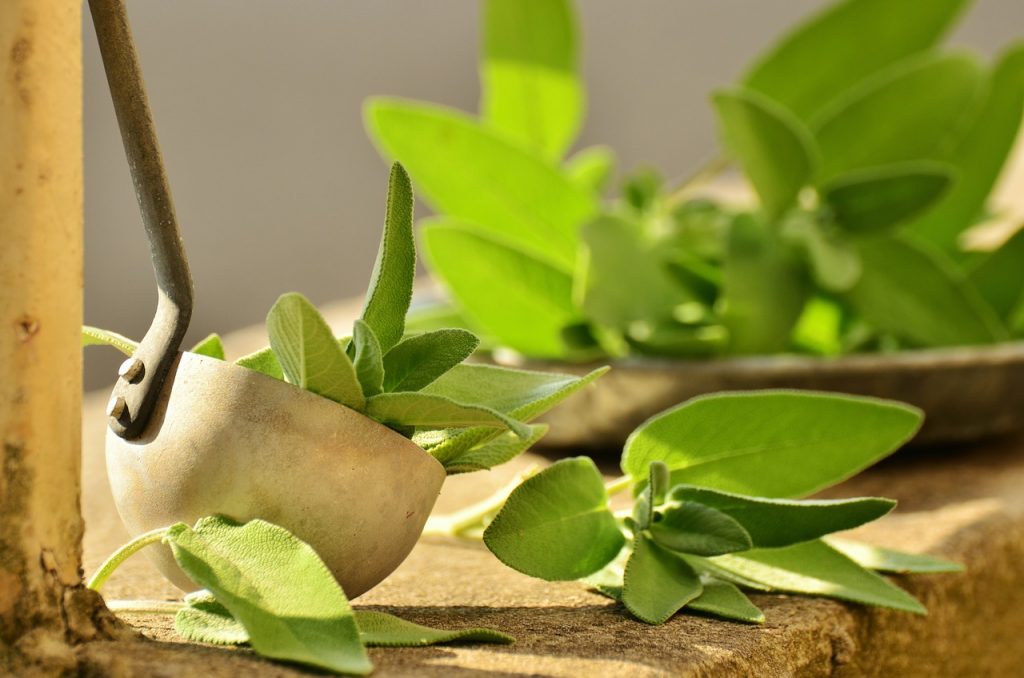
Avoid getting ill
- Symptoms of indigestion may appear as heartburn, coated tongue, gas pain, headache, nausea, loss of appetite, vomiting, foul breath, and bad taste in the mouth and you might even sometimes experience palpitations and difficulty with breathing. Botanicals provided by nature not only bring about the desired results in digestive disorders but also work in a very gentle manner. Culinary herbs, combined with certain foods, help prevent indigestion and are known to counteract stomach acidity, nausea, and nervous indigestion.
- Writings on the use of herbs as an aid for toning up the stomach takes us back many centuries. In former times, every home had its own herb garden, and the lady of the house always seemed to know just which herb was best for improving the appetite and which one would relieve heartburn, gas, sour eructation’s, or nausea. These old remedies are still with us today and are rapidly regaining their former popularity.
- Ulcers can cause us to experience stomach pain and we have all experienced indigestion from eating too much. Many of us suffer from IBS (irritable bowel syndrome) as well as diarrhea – these are just a couple of problems that plague the digestive system; such a sensitive area. Our liver also forms part of the digestive area and needs special attention because of its significant role in our bodies. It needs strong enhancements like digestive herbs to keep the body functioning in order. The liver is, in fact, a wonderful ‘factory’, performing over 500 major tasks in our body, making use of literally thousands of varying enzymes. One of its very important functions in the body is to act as a filtering system for our blood. One can’t afford to not take care of the digestive system when you realize just what a vital role it plays in determining our health.

- Cancer today, is a disease affecting millions. Without a shadow of a doubt, there is growing evidence proving that the foods we eat are increasing our risk of contracting cancer. The World Cancer Research Fund International claims that stomach cancer is rampant, being the 5th most common cancer in the world, and rating third in deaths caused by cancer. Herbs do a great job, but you also have to check out things that cause cancer.
- Do you drink more than 2 or 3 alcoholic drinks in a day?
- Do you eat foods that are preserved by salt, like fish and pickled vegetables?
- Are you eating a lot of processed meats that are packed with preservatives, plenty salts, and sugars?
- Are you obese, according to your body mass index?
- Do you smoke a lot?
- Are you using a lot of industrial chemicals?
Tried and tested by the ancients
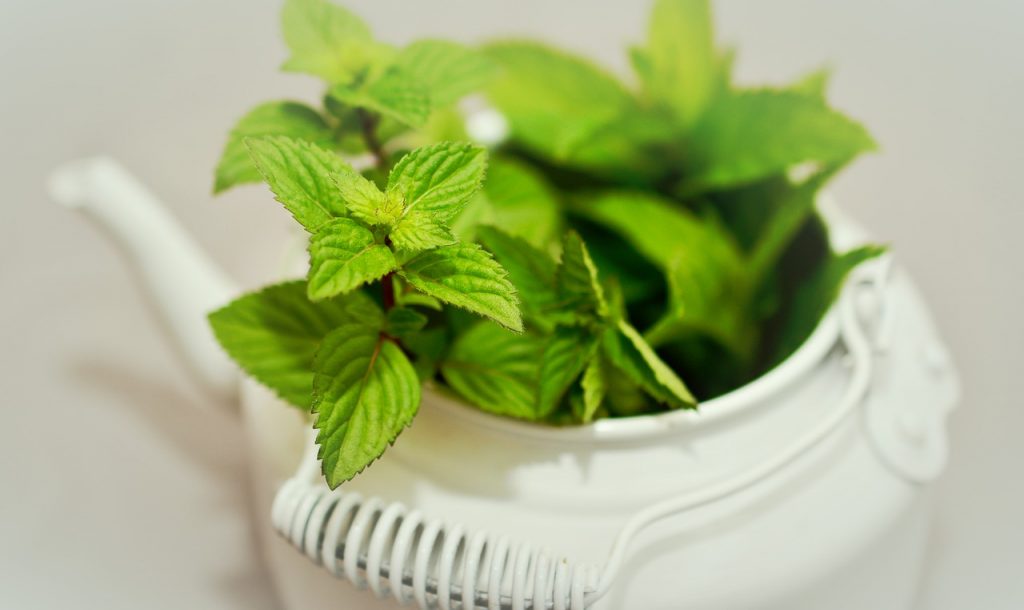
Most people think of culinary herbs solely in terms of flavor, not realizing that their original purpose was therapeutic. When the ancients began adding more meat and heavy rich foods to their diets, they found they were getting sick. So they conceived the idea of taking their medicine with their food, including herbs such as ginger, fennel, anise, sage or mint to help prevent indigestion. Mint added to peas, for example, helps correct the tendency of peas to produce gas. The custom of serving mint sauce with lamb is not merely a matter of taste; young meat is more difficult to digest and the mint helps to prevent it from disagreeing with your digestive system. Marjoram, another popular culinary herb, was also employed mainly as a digestive aid. Sweet marjoram is chiefly used as a condiment in cooking to diminish the heaviness of pork, goose, and other foods. The American Indians also fully recognized the true purpose of culinary herbs and combined them with food to improve digestibility. The flavor factor was secondary.
Each herb mentioned plays a very important and unique purpose in digestion and detoxification of the body. Let’s look at what they contribute. But first of all, check out why you develop digestion problems in the first place:
X- You don’t chew properly
X- You drink too many liquids with your meal
X- Take a lot of antibiotics
X- Excessive juicing and eating of cold, raw foods
X- Too much sugar and salt in the diet
X- Drink too much artificial alkaline water
1. Artichoke (Cynara
scolymus)
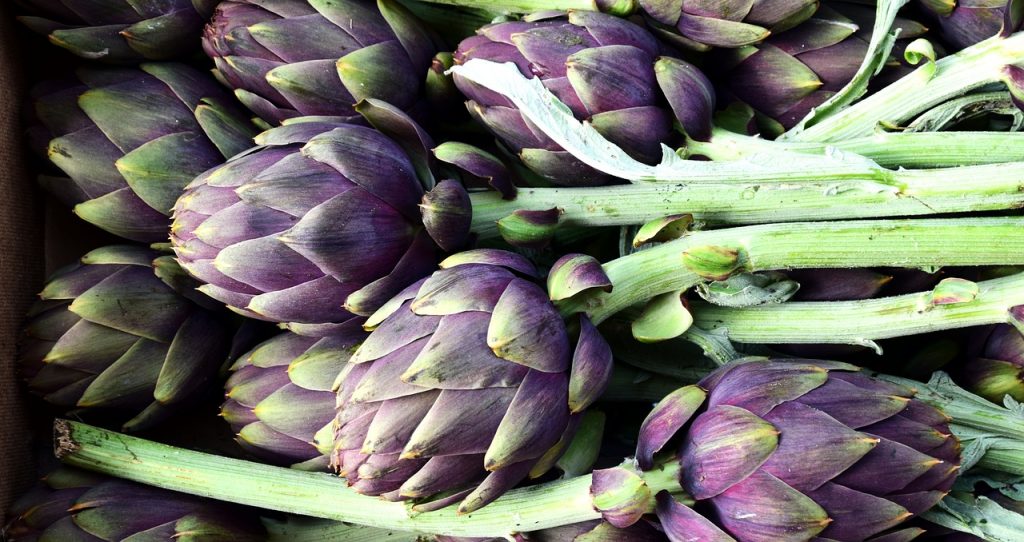
Artichoke is a natural digestion and liver tonic. It is believed, according to legend, that Zeus was rejected by one he loved, Cynara, turning her into a thistle when she rejected him. This wonderful herb has been used as a medicinal digestive herb dating back to the Roman Empire day. It belongs to the daisy family and can grow as high as 6 ft. It is well known for its wonderful medical qualities, being documented already back in time by pupils of Aristotle, the Greek philosopher. It is used as a liver tonic, of which it has great restorative powers. A very strong herb for digestion, it stimulates the flow of bile in the body which leads to improved digestion, also helping the body with the breaking down of food more effectively. It also is known to strengthen kidney function. The main ingredient in the artichoke is known as cynarin, found in high concentrations in the leaves. As a top herb for the digestion system, artichoke soothes IBS, takes away feelings of nausea, constipation and bloating. Research shows that this plant has the ability as well to maintain normal levels of cholesterol.
2. Ginger (Zingiber
officinale)
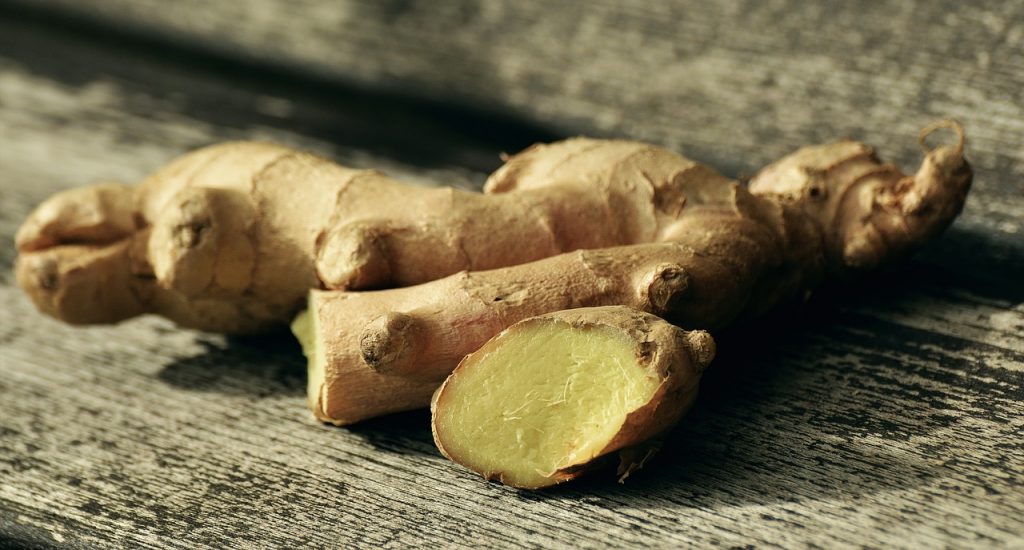
Ginger is noted to rank as one of the top herbs with it comes to digestion. A soothing, warming spice, which means it impacts on the circulatory system. Ginger comes from way back in history from the Roman Empire days, holding an honorary place for use in traditional medicines. Ginger root has been used by Chinese herbalists for approximately 2000 years already and the ancient Greeks used it to make their bread – a top aid for digestion. It grows wild in Asia, and used today therapeutically to control upset stomach and nausea – this is because of its anti-emetic properties, which also is useful for alleviating stomach cramps. There are excellent anti-inflammatory components in ginger named gingerol and zingerones, making it the natural remedy to seek when suffering from heartburn, nausea from motion sickness and superb as a normalizer for the digestive process. Confucius, before he ate anything, would sprinkle a bit of this digestive herb over his meals as he believed it would promote appetite and help to expel gas from the intestinal tract and stomach. Check out this secret Chinese formula reputed to be excellent for restoring strength to the stomach and promoting healthy digestion:
- Take half cup white rice in a flat bowl; pour enough water to barely cover the rice. Let stand overnight so that water is completely absorbed by the rice. In the morning, if there is any water left, drain it off. Put the rice in a dry frying pan and gradually heat it up until the pan is very hot. Using a spatula, keep turning the rice slowly so it doesn’t get burned. When it is parched dry and golden brown, put it in a glass jar and cap tightly so no moisture gets in.
- Next step, bring one cup of water to the boil, adding one teaspoon of the parched rice and a small piece of ginger root. Boil for one minute, then turn off and let stand for 5 minutes. Strain.
- Take one teaspoonful once or twice a day. The Chinese claim that this remedy is especially good in cold weather as it has a warming and comforting effect on the stomach, felt throughout the entire system.

3. Slippery Elm Bark
(Ulmus fulva)
Today, finely powdered slippery elm bark is considered one of nature’s finest demulcents, used for its ability to neutralize stomach acidity and to absorb foul gases. Its action is so gentle that it is able to be retained by a delicate stomach when other foods are rejected. It has other abilities too, aiding in the digestion of milk, by separating the casein particles. Slippery elm bark is even considered to be of benefit to children, invalids, as well as the aged, with delicate constitutions and digestion. Because slippery elm is kind of gooey, it helps the whole process of assimilation and elimination. It acts as a bulwark against irritations and inflammation of the mucous membranes. Native Americans long ago used the inner bark of the elm tree so that they could make poultices to heal damaged skin. It drew out the poisons from abscess and boils. It proved to be a great healer in calming digestive problems that people suffered when typhoid was so prevalent.
4. Peppermint (Mentha
piperita)
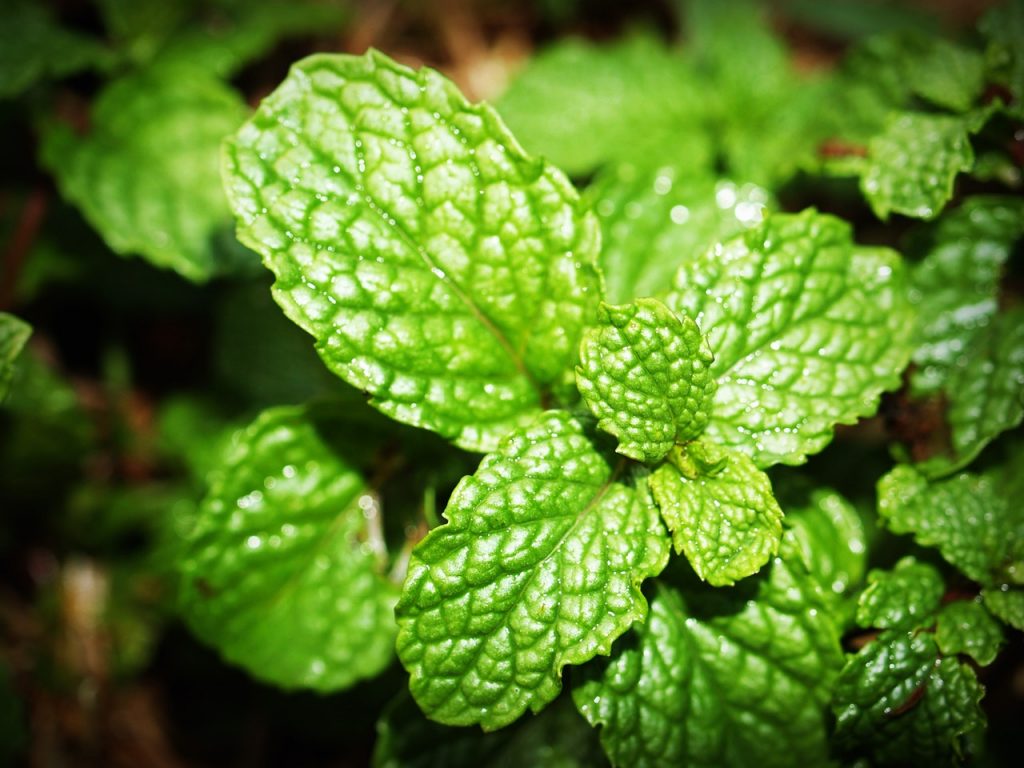
An old-time beverage, peppermint tea is very valuable when it comes to relieving stomach gas, flatulence, and any resultant distress. It is extremely comforting to the stomach and agreeable to the system. Because it is caffeine-free, this beverage won’t cause any restlessness and keep people awake at night. It is palatable, aromatic and refreshing. You can easily take it as a wholesome tisane by each member of the family. For young children, just one or two tablespoons of this tea, sweetened with honey is ideal for stomach-ache, let alone helping adults with digestion relief and relieving colicky diarrhea. Studies reveal that using peppermint oil is a treatment accepted to treat IBS because the oil helps in easing bloating, spasms and cramps.
5. Angelica (Angelica
archangelica)
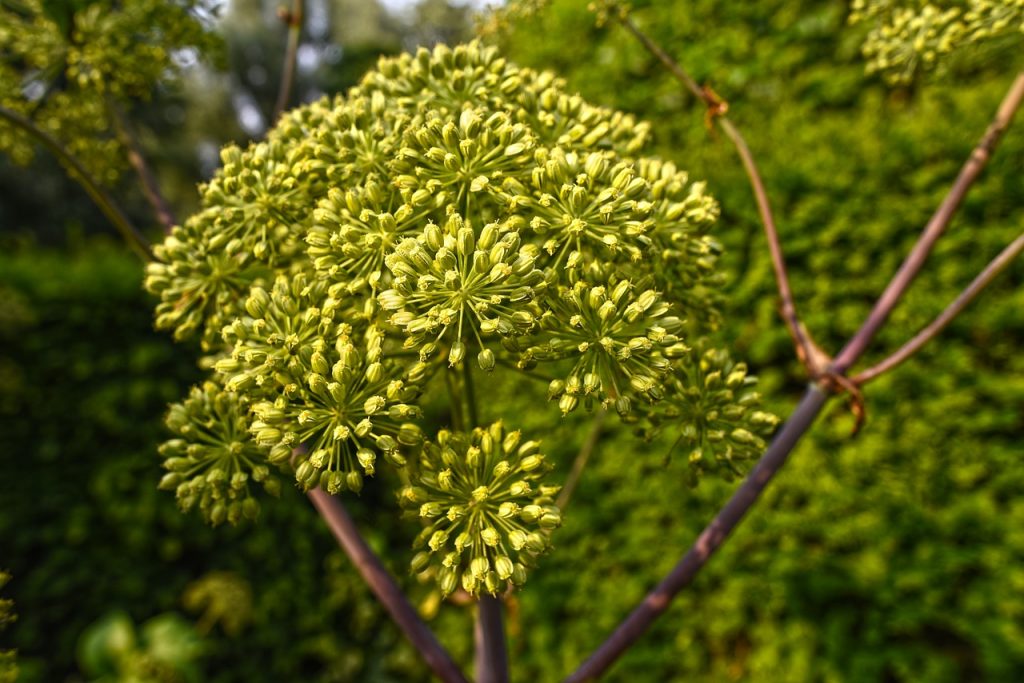
It is said that the name Angelica was given to this specific plant because it blossomed on the archangel St Michael’s Day. Another version has it that this herb was so named during the Middle Ages when a devout man dreamed that St. Michael appeared and told him the plant was a cure for the dreaded plague, the Black Death. In the contemporary description of those times, one finds repeated references to the belief that anyone who kept a piece of angelica root in his mouth all day would be immune from contagious diseases. Angelica has always been a popular flavoring agent in the kitchen and a medicine for indigestion. In some countries the stalks are candied, the roots roasted and the leaves prepared and eaten like spinach. The seeds or roots were used as a tea in old times as a favorite for relieving gas pains. Dr. Vogel of Switzerland used to say that the fresh plant extract of angelica had an excellent effect on the digestion; on irritations of the gastric mucous membrane; on the loss of appetite, and also on stomach cramps. Dr. Vogel mentioned that the seeds could also be used. He was the one who gave this genuine angelic liqueur recipe which is shared below, stating that there was no better or more pleasant remedy for digestive trouble or flatulence than angelica. He mentioned that when guests arrived at the ancient monasteries of old, they would be given a glass of “Vespetro”, taking a small sip – which would have a quicker and better effect than the chemical tablets manufactured at that time.
- 2 ounces angelica seeds
- A quarter ounce of anise seeds
- A quarter ounce of fennel seeds
- Approx. 1/5 ounce of coriander seeds
- Grind together in a bowl to which 8 fluid ounces of pure drinking alcohol is added and the preparation allowed to stand for 8 days. Afterward, strain through muslin and mix with a solution of one pound of sugar (preferably grape sugar; dextrose) and dissolved in two and a half pints of water.
6. Anise (Pimpinella
anisum)
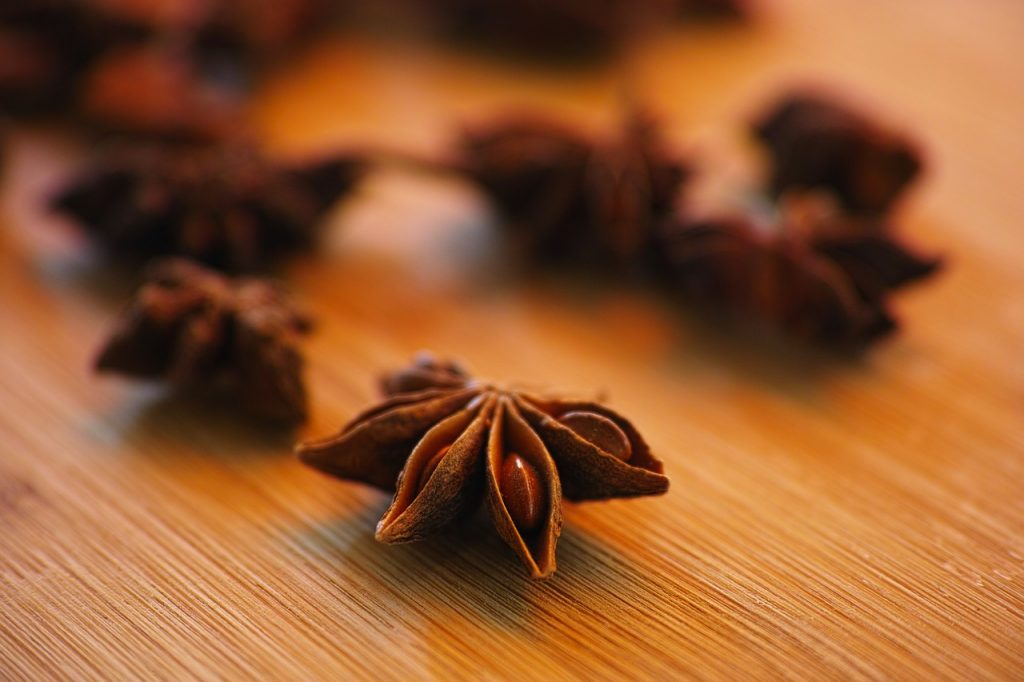
Anise is of Eastern origin but is now cultivated in many parts of the world. It has an ancient reputation as a carminative, stomachic, expectorant, and flavoring agent. Several centuries ago, the Romans and Greeks used anise in relishes, seasoning, sauces, and wines, just like we do today. The seeds were chewed as a breath sweetener and to stimulate the appetite. Back in time, the Romans served their guests wedding cake which was flavored strongly with anise seeds. This would help to prevent indigestion caused by over-indulging at the marriage feast. From this ancient practice came the tradition of baking anise cakes for weddings. John Gerard, an early herbalist, recommended anise seeds as being good against belching in the stomach. Anise is still considered a good domestic remedy for preventing gas and fermentation in the stomach and bowels if a tea is brewed from the seeds and taken warm.

7. Fennel (Foeniculum
vulgare)
Fennel, known as “the friend of the stomach” has been used since earlier times as a culinary herb and medicine. It is reputed to have a soothing effect on the mucous membranes of the stomach and to be wonderfully effective in helping people bothered by excessive belching and flatulence. There are also recommendations for its use in culinary skills as an aid in the digestion of fish, beans, peas, cabbage, and cheese. Back in Grandma’s time, the people ate light, bland diets, and then drank four or five cups of pleasant tasting fennel seed tea a day for a few days, when they had upset stomachs or stomach distress. One or two teaspoons of the warm tea were given to infants for the relief of colic. The seeds were also used to check help with the aching pain tendencies that using laxative or purgatives brought. In Italy, the use of the dwarf varieties of fennel (F. dulce) called finocchio dates back to the days of the early Romans when gladiators mixed the fennel with their food, claiming that it gave them strength. Today, fennel teas are available that still help as an aid for digestion, especially after eating rice and oily fish. It is thought, however, that if you use fennel sauce over them, you will have no trouble with your digestion.
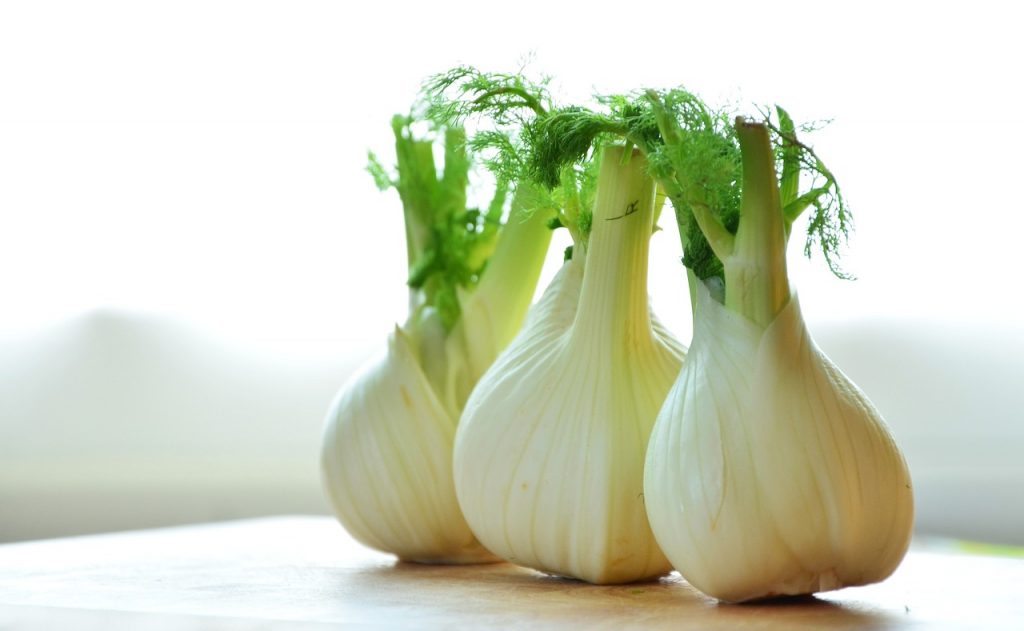
8. Bitters for better digestion (various herbs)
The custom of employing bitters as a stomach tonic is age-old. Romans, notorious for their overindulgences, believed bitters were necessary with food. The Indians also appreciated the natural bitters of herbs, vegetables, and fruits. Today, bitters are still highly valued by many people. In Iceland, Lapland, and Greenland, bread, and beverages are made of bitter Iceland moss; bitter herbs are also added to wines, liquors, and beer. In other nations, some people gather the bitter leaves of the wild dandelion early in the spring and use them in salads. Among the Germans, gentian is a highly prized bitter herb. It is reputed to be a powerful tonic which strengthens the digestion system and improves the appetite to a remarkable degree. Gentian is excellent for cramp in the stomach. Father Kneipp, the renowned herbalist and water healer used to say that when people in his day, after a long and tedious journey and after eating much food and drinking even more, would buy a tiny bottle of gentian tincture taken in drops on sugar to soothe their stomachs. Golden Seal (Hydrastis canadensis) is another highly regarded bitter, regarded by the Cherokee Indians as a bitter tonic for certain complaints. The medical professionals also took great interest in this herb and many reported on its use in medical writings. It is known to relieve stomach oppression, heartburn, and nausea. Dr. Finley Ellingwood, famed herbalist, wrote that in his opinion, golden seal’s widest range of action was upon the stomach, as it removed heaviness after eating. In modern British volumes on botanical drugs, golden seal is cited as being a very valuable remedy in disordered states of the digestive system. As a remedy for various gastric inflammatory conditions, it will be found of value in all cases of biliousness, dyspepsia, and debility of the digestive system. Another highly valuable bitter herbs are yarrow (Achillea millefolium), excellent for weak and disordered stomachs.

Digest this in conclusion
Naturally, we all want excellent digestion, especially healthy bowel movements. Certainly, herbs and bitters should be included, but it is imperative that your diet, too, is not filled up with trans-fats and refined sugars. These surely must be the top two offenders when it comes to digestive problems. So what can we do to improve digestion? Get back to using herbs. Make sure you also properly digest and assimilate your foods, critical for keeping the mood, hormones, energy levels and immune system strongly in balance. It’s time to become mindful of how and what we eat. You can get your digestive health back on track, but you need to care for this brainbox, the digestive system – let excellent nutrients, exercise, good sleep and herbs be your medicine.

